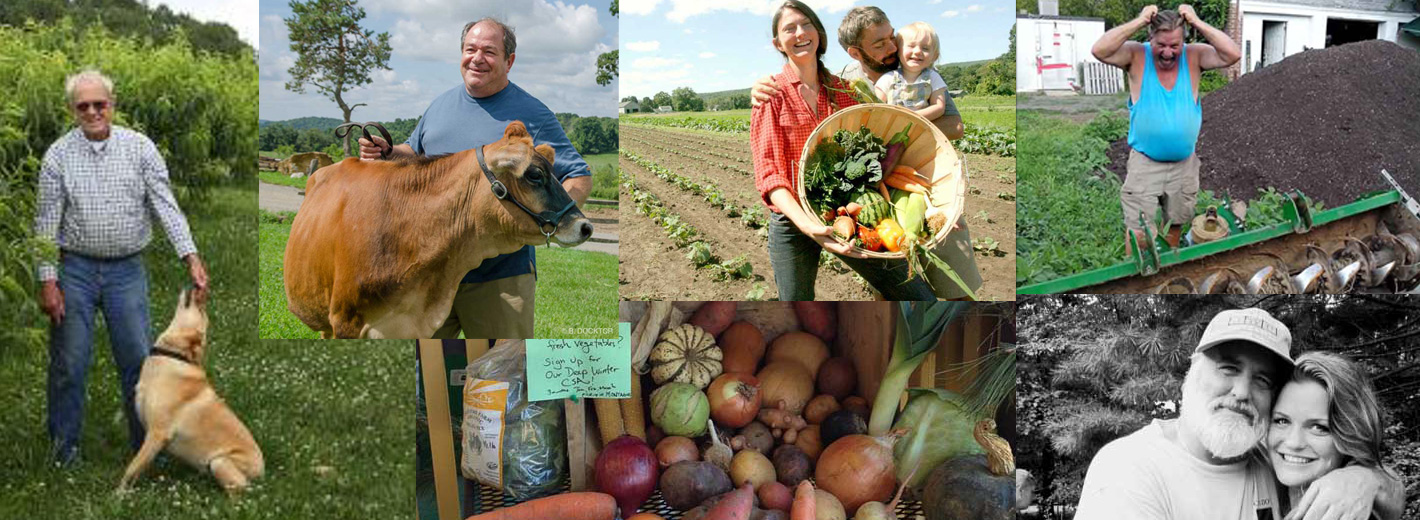
Bon Appétit Fork to Farm Grant Finalists: Northeast Region
A dairy wants a “cow cam,” an orchard grower and a jam maker need hoop houses, and two organic farms need a replacement tiller and a new root vegetable elevator.
Bon Appétit employees and guests at our locations in Connecticut, Massachusetts, Maine, New Hampshire, New Jersey, New York, Pennsylvania, Rhode Island, and Vermont will get to vote for their two favorites from these five finalists on September 23, our 10th annual Eat Local Challenge. (To see the other regional finalists, use the links at the top of this page.)
GRANT RECIPIENTS
GUEST PICK: Horse Listeners Orchard, Ellington, CT
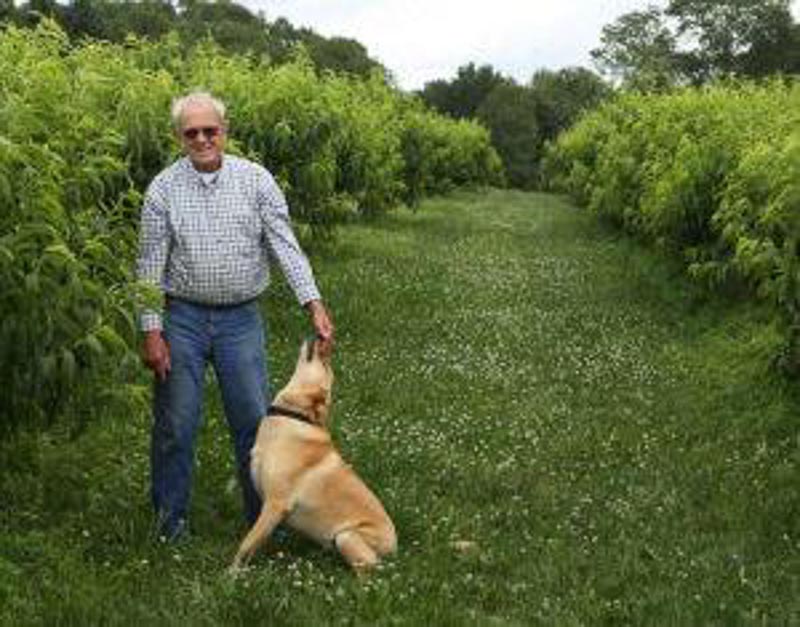 A 153-acre orchard growing apples, blueberries, peaches, vegetables; we also make tomato sauce, applesauce, and jams.
A 153-acre orchard growing apples, blueberries, peaches, vegetables; we also make tomato sauce, applesauce, and jams.
Project: Installing a new hoop house and increasing the size of our walk-in cooler.
Details: There is an ever-increasing demand for green vegetables during the winter. The completion of a hoop house structure would double our growing space and let us expand to other locations with our products.
(Optional) How has working with Bon Appétit been helpful to you and your business?
Thank you for being the real thing when it comes to supporting local farmers and not just words on paper. It has been an incredible journey to work with Wesleyan University, Roger Williams University, St. Josephs University, Hampshire College, MIT, Hamilton College, and Lesley University.
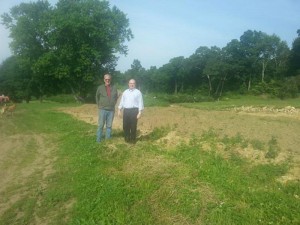 The chefs at each university have contributed to my knowledge and shared with me what is important to them. I have learned that they appreciate me getting fruit to them within hours of picking, that leaving the skins on in making crushed tomatoes improves taste, that working with the students on campuses to speak about Bon Appétit’s mission — and that growing what they need in a timely fashion just for Bon Appétit — makes their promises real truth to the customer.
The chefs at each university have contributed to my knowledge and shared with me what is important to them. I have learned that they appreciate me getting fruit to them within hours of picking, that leaving the skins on in making crushed tomatoes improves taste, that working with the students on campuses to speak about Bon Appétit’s mission — and that growing what they need in a timely fashion just for Bon Appétit — makes their promises real truth to the customer.
I get engaged in the farmers markets, student farms, and meetings regarding locally grown food on all the campuses. Horse Listeners Orchard has been featured every year on many of the campuses during the fall events recognizing local farmers. I appreciate the opportunity to continue working with Bon Appétit.
STAFF PICK: Red Fire Farm, Montague, MA
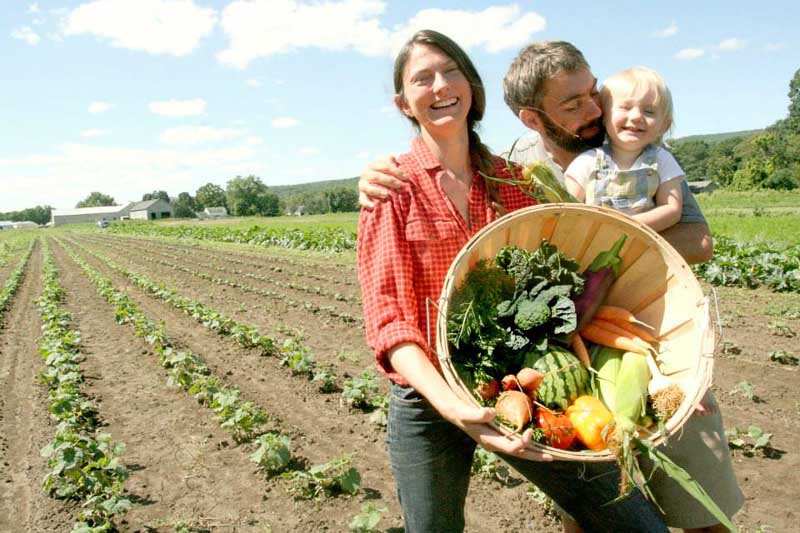 Grows Certified Organic produce, plants, and flowers on over 100 acres in the Connecticut River Valley.
Grows Certified Organic produce, plants, and flowers on over 100 acres in the Connecticut River Valley.
Project: Improve our winter root produce-storage facility by adding a strategically located trap door, pallet elevator, and an additional 16-pallet storage chamber.
Details: Over the last few years, Red Fire Farm has been focusing on ways to provide more year-round produce for our customers. We do some winter growing in greenhouses and high tunnels, but also have a big focus on storing root vegetables all winter long (carrots, potatoes, onions, beets, turnips, and so forth).
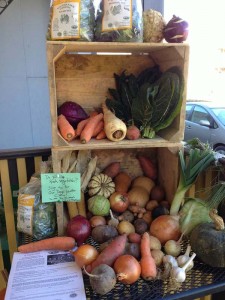 We have renovated our packing barn and added capacity for storing about 100 pallets of produce each fall. However, our main 60-pallet storage chamber is located in the basement of our barn, and we need a better way (other than using the tractor and forklifts) to move the pallets out of the basement storage and into the upstairs washing and packing area each winter. We have designed plans to make a pallet-sized trap door in the ceiling of the storage chamber (the floor of the upstairs). Once this door is made, we will be able to use an electric pallet lifter as an elevator to lift pallets upstairs without having to fire up the diesel tractor on cold winter days. This will greatly improve the efficiency of our wintertime produce washing and packing operations.
We have renovated our packing barn and added capacity for storing about 100 pallets of produce each fall. However, our main 60-pallet storage chamber is located in the basement of our barn, and we need a better way (other than using the tractor and forklifts) to move the pallets out of the basement storage and into the upstairs washing and packing area each winter. We have designed plans to make a pallet-sized trap door in the ceiling of the storage chamber (the floor of the upstairs). Once this door is made, we will be able to use an electric pallet lifter as an elevator to lift pallets upstairs without having to fire up the diesel tractor on cold winter days. This will greatly improve the efficiency of our wintertime produce washing and packing operations.
The materials needed for this trap door project include lumber, cable, counterweight, and misc. hardware. We estimate these materials can be procured at the lumber yard for around $1,000. Labor will take a skilled farm-employed carpenter about five 8-hour days at $20 per hour for a total of $800. The total request for the trap door project aspect of our proposal is $1,800.
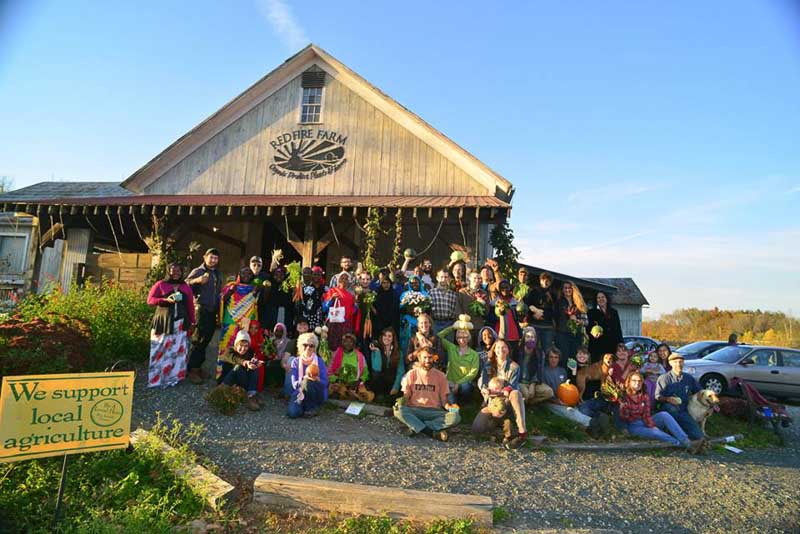 Additionally, we would like to use the rest of the grant funds to expand our overall storage capacity for storing root vegetables. In addition to the 100 pallets of storage capacity that we built into our barn, in order to hold our entire crop we also have had to rent cooler space at an off-farm warehouse the last few winters. This off-farm warehouse is over an hour’s drive away causing many logistical complications and expense to get the pallets of produce trucked in and out of the rented space each fall and winter.
Additionally, we would like to use the rest of the grant funds to expand our overall storage capacity for storing root vegetables. In addition to the 100 pallets of storage capacity that we built into our barn, in order to hold our entire crop we also have had to rent cooler space at an off-farm warehouse the last few winters. This off-farm warehouse is over an hour’s drive away causing many logistical complications and expense to get the pallets of produce trucked in and out of the rented space each fall and winter.
We would instead like to build more on-farm storage space in order to simplify our winter operations. Our plan is to add one or more insulated and refrigerated ocean shipping containers. We will situate these on our farmyard near our packing barn where we can provide electricity for the refrigeration equipment, and where they will be conveniently located to our produce washing area and delivery dock. We have quotes from several companies, and we should be able to procure each insulated container (16-pallet capacity) for $4,000 to $7,000 each. We would like to use the remaining Bon Appétit grant funds toward the purchase of one of these units. The farm will pay the balance of the cost, as well as for the refrigeration equipment, using other funds.
(Optional) How has working with Bon Appétit been helpful to you and your business?
We have found our Bon Appétit customers to be some of our best accounts, with the produce buyers really excited about the work that we do at Red Fire Farm, and the amazing and delicious produce that it yields. We are particularly excited about Bon Appétit’s new initiative at Hampshire College, as the college is an easy location for us to deliver to regularly.
GRANT FINALISTS
Ronnybrook Farm Dairy, Ancramdale, NY
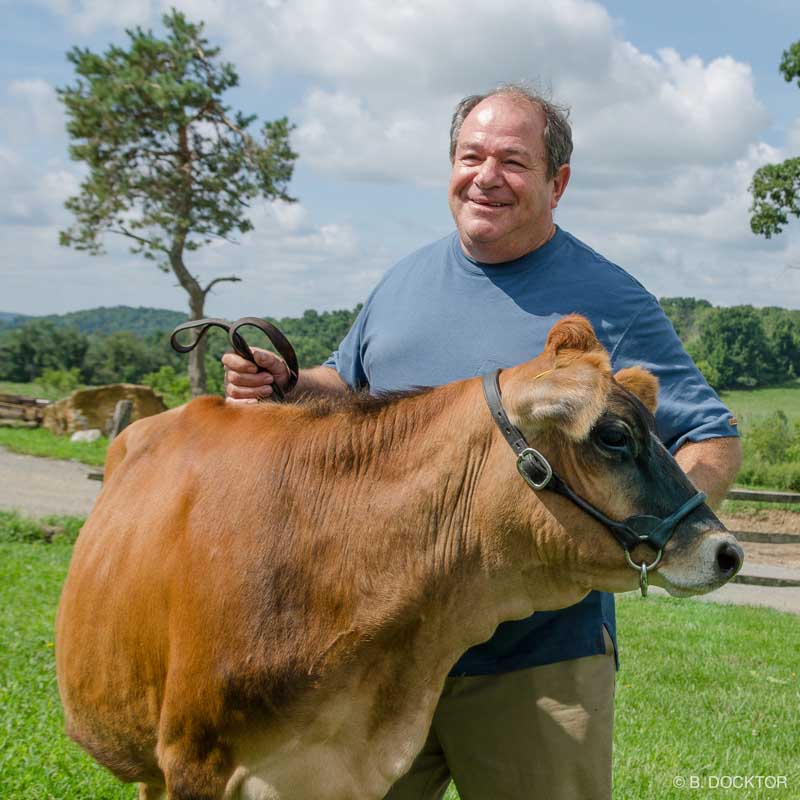 Family-owned and -operated dairy farm with on-farm creamery producing a full line of all natural creamline dairy products.
Family-owned and -operated dairy farm with on-farm creamery producing a full line of all natural creamline dairy products.
Project: A wireless webcam (aka the “cowcam”) and tablets that will offer customers live streaming of daily farm life and the cows, making the food chain legible.
Project: We would like to purchase a wireless webcam and tablets to offer our customers live streaming of daily farm life and the life of our cows making the food chain legible.
Details: Most people don’t know very much about milk. They know that milk comes from cows, but that’s about it. They certainly don’t know why some milk is better than other milk. It’s our mission at Ronnybrook to educate people about milk. We especially want to educate people about why they can trust us to provide our customers with the healthiest and tastiest milk and other dairy products around.
Ronnybrook is a family farm located in the beautiful Hudson Valley 90 miles north of New York City. The farm has been family owned and operated by the Osofsky family for nearly 80 years. The standards the family follows to achieve these goals include the following:
- No use of BST or other synthetic hormones.
- Cows are grass fed throughout the growing season and fed hay and other forages grown on the farm during the winter months.
- The humane treatment of animals as prescribed and certified by NYSCHAP, New York’s States premier animal welfare program.
- No artificial flavors or colors or other ingredients.
- Environmental stewardship.
- Products are produced and manufactured on the farm with much of the distribution accomplished by our own trucks and staff
- Bringing transparency to the methodology of producing milk. Ronnybrook gladly welcomes customers to visit the farm.

Those that visit are offered a wealth of information about farming. They learn how we care for our land and grow quality crops for our cows. They learn how we care for our cows from infancy to maturity. And finally they learn how we take pride in processing the various milk products that we make each day.
Ronnybrook would use the $5,000 grant to support our mission to make the food chain more legible. To show visually how milk gets from the farm to the tables of our customers. Ronnybrook is very fortunate, it is a vendor at over 12 farmers’ markets in the New York Metropolitan area. These markets bring Ronnybrook into personal contact with as many as 4,500 customers each week. In addition, Ronnybrook serves as many as five colleges representing thousands of students. Finally Ronnybrook has a retail shop in Chelsea Market in New York City where as many as 10,000 shoppers pass the store each day. If awarded this grant, we would use the money to expand awareness of what we do at Ronnybrook through the use of social media, educating the public by bringing the farm directly to those who are unable to experience the farm in person. We would purchase a wireless camera system and six tablets allowing us to capture activities at the farm. A “Cow Cam” featuring a live stream of daily life on the farm could be shown at our locations. The system would also be used to air podcasts and webinars sharing information on recent developments in agriculture, food, and nutrition.
(Optional) How has working with Bon Appétit been helpful to you and your business?
Bon Appétit has been unselfish in helping promote Ronnybrook as a local family-owned food purveyor. They have encouraged us to display promotional material for Ronnybrook throughout the food service area, they have published a number of articles about Ronnybrook and even brought a group of students on a field trip to the farm! Bon Appétit is a strong advocate of the “eating local” movement.
Urban Oaks Organic Farm, New Britain, CT
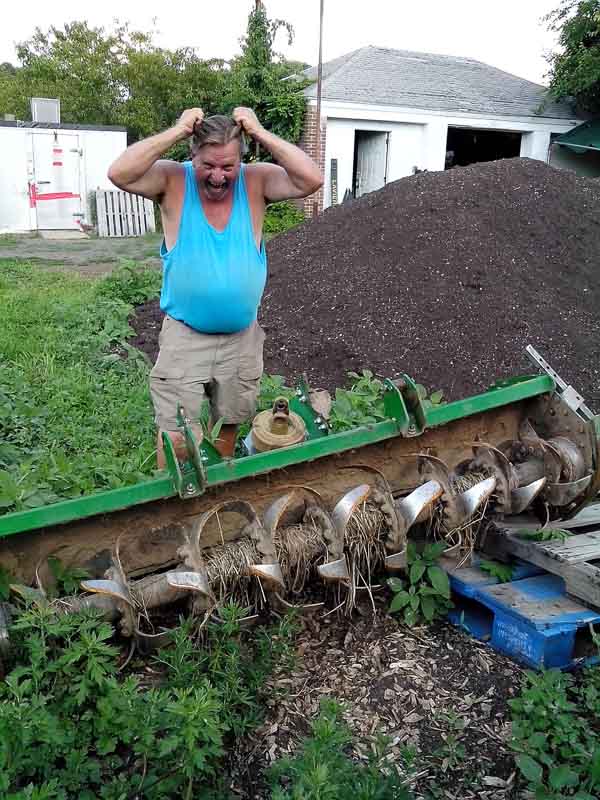 Grows Certified Organic, mostly heirloom vegetables. In the outdoor growing season, we grow just about everything — squash, eggplant, tomatoes, peppers, onions, garlic, okra, and herbs. Throughout the fall and winter, in our seven greenhouses, we grow prize-winning greens such as kale, arugula, lettuces, chard, collards, and herbs.
Grows Certified Organic, mostly heirloom vegetables. In the outdoor growing season, we grow just about everything — squash, eggplant, tomatoes, peppers, onions, garlic, okra, and herbs. Throughout the fall and winter, in our seven greenhouses, we grow prize-winning greens such as kale, arugula, lettuces, chard, collards, and herbs.
Project description: A replacement tiller, desperately needed for both our own urban fields and for new more rural land we were given.
Details: Trying to prepare for planting a long-unused plot of land offered to us on the site of the Holy Family Retreat Center in Farmington, CT, the tiller on our tractor broke on some huge rocks hidden below the surface. See the picture of me [right] pulling out my hair as I look at our mangled tiller!
It cannot be welded or repaired. There is no way we can afford to replace it, but neither can we continue to produce crops past this summer on our urban farm without it. The end of September is when we will be beginning to turn over the residue of crops that will have gone by. We need to till it once more, this time for a cover crop. Clearly, that will be exactly when we will certainly need a new tiller, which we have discovered would cost precisely the amount of the Bon Appétit grant: $5,000.
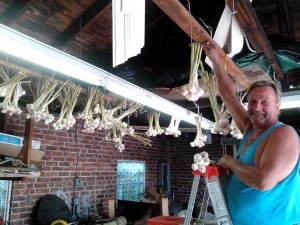 On our website, you can read an article about our newly formed and very hopeful partnership with the Holy Family Retreat Center. It seemed to be a wonderful extension beyond our 3.5-acre operation here, in this low-income neighborhood in what a recent University of Connecticut study found to be the third most food-insecure city in the state. Our mission here is vitally important, but the space is limited. So our chance to increase our sales through the 1.5-acre Farmington land was promising. Here at Urban Oaks, our tiller had worked fine: we had originally taken two years to reclaim this land from what had long become a waste dump. We knew what we were facing at that time. (See History section of our website).
On our website, you can read an article about our newly formed and very hopeful partnership with the Holy Family Retreat Center. It seemed to be a wonderful extension beyond our 3.5-acre operation here, in this low-income neighborhood in what a recent University of Connecticut study found to be the third most food-insecure city in the state. Our mission here is vitally important, but the space is limited. So our chance to increase our sales through the 1.5-acre Farmington land was promising. Here at Urban Oaks, our tiller had worked fine: we had originally taken two years to reclaim this land from what had long become a waste dump. We knew what we were facing at that time. (See History section of our website).
Because we were all excited about the new opportunity of the partnership, and because as far as the Holy Family people knew, the land had only ever been used as a ball field, once we took the soil samples (and were surprised not to even encounter obvious New England rocks), we went ahead with the project. We had fully intended to have completed planting at “Holy Oaks,” the composite name of our two groups, by early June of this year. When I planted seeds this past winter, I planted enough extra so we would have seedlings for that new land. We hired a farmer with a much larger machine to break the ground, and he didn’t seem to encounter serious obstacles. So we expected to have easily accomplished the tilling and planting. The expectation on both sides was that we would be harvesting, as early as this August, fresh vegetables for the Holy Family’s Copper Beach retreats, and also for our own sales.
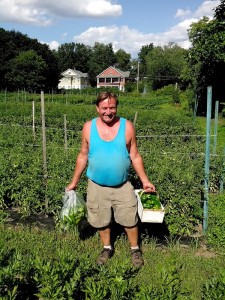 Then the tiller broke. With this totally unexpected and quite devastating setback, we have had to decide to think of 2014 as a time to prepare that suburban/rural land, by hiring someone with a heavy-duty machine that can remove those rocks. It’s too late for planting now. At most, this year, perhaps we’ll be able to plant a cover crop at the Farmington site. Then (we hope) we can think about planting — and therefore harvesting — at Holy Oaks next spring, for the 2015 growing season.
Then the tiller broke. With this totally unexpected and quite devastating setback, we have had to decide to think of 2014 as a time to prepare that suburban/rural land, by hiring someone with a heavy-duty machine that can remove those rocks. It’s too late for planting now. At most, this year, perhaps we’ll be able to plant a cover crop at the Farmington site. Then (we hope) we can think about planting — and therefore harvesting — at Holy Oaks next spring, for the 2015 growing season.
But now it’s also our own urban operation that’s seriously at risk. We hope you will consider our project worthy of your 2014 Northeast grant.
(Optional) How has working with Bon Appétit been helpful to you and your business?
Bon Appétit at Wesleyan University has been our best university customer! You have bought a lot of our greens all winter and spring, and thus the students have learned what local, healthy, organic, utterly fresh greens can taste like. As a result, some of them have subsequently shopped here on their own!
We Bake We Jam, Durham, CT
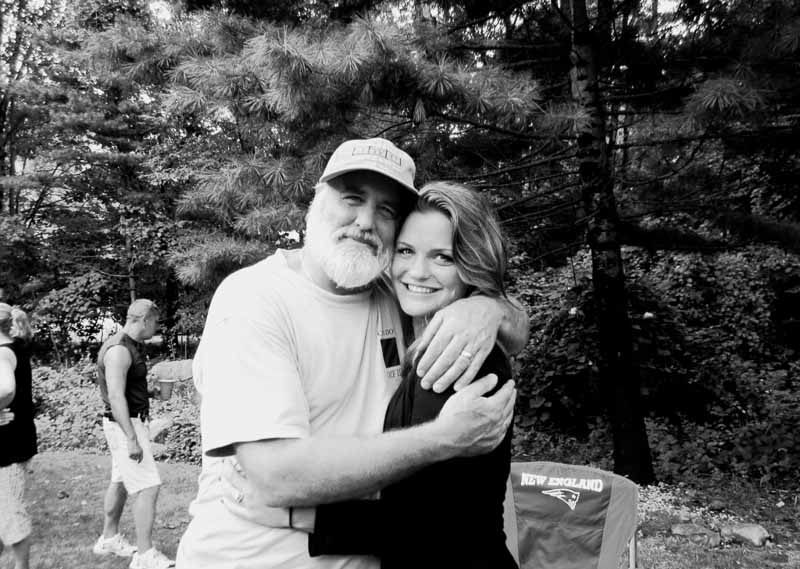 Award-winning jams, jellies, and pickles made from local produce by a Bon Appétit chef at Wesleyan University.
Award-winning jams, jellies, and pickles made from local produce by a Bon Appétit chef at Wesleyan University.
Project: A greenhouse that would help grow additional local ingredients to serve the expanding business.
Details: My name is Jeffrey S. Hill. I own, created, and run We Bake We Jam from my home in Durham. I grew up about 10 miles from here in Portland, CT. Since I was very young, I have had a strong interest in gardening and in cooking. I applied and was accepted to the University of Connecticut agricultural department, and to Johnson and Wales University in Rhode Island. I chose Culinary Arts. I am still an avid gardener and is a great hobby to incorporate into my culinary expertise.
Somewhere in my teenage years I began taking an interest in preserving my own produce from my garden. The feedback was positive — compliments on the quality, appearance, and flavor.
I began my culinary employment at Wesleyan University in Middletown on August 28, 1979, where I still work, presently for Bon Appétit. I have had suggestions over the years to market my products; three years ago Bon Appétit gave me the opportunity. Over the years I have entered items in the largest agricultural fair, the Durham Fair, and won blue ribbons. I developed a concept and drew up a design for a label, for a patent, and insurance and started We Bake We Jam.
My business is small but growing, my wife Claudia and I both work full-time jobs, and the two of us have brought up 6 children. We don’t have a lot of money and live week to week. We have had our struggles through the years with the utmost being losing our daughter at the age of 25 in 2006, from complications to a long battle with a neurological muscle disorder, dystonia, her inspiration has given us all the thought to never give up and persevere.
I have tried to save for a medium-size greenhouse to accommodate my love and need of starting all my own produce, which I do now using old windows and screens. My porch is currently my workspace and needs expansion. I am visually impaired and do not drive (I never have), due to a congenital eye issue at birth. Transportation has always been an obstacle but I have worked through it. The more I can work from home the better. At 56 years old, I’m trying to look to the future and sustain myself in my older years. I’ve been barely above water financially for years. I’m not proud, but I don’t ask for help. I’d rather try to do it myself. I’ve always been like that, old school I guess.
I’ve always subscribed to the local food concept. I want to always be part of that. I believe with a little financial help my business will grow and prosper. I hope you seriously consider this application.
(Optional) How has working with Bon Appétit been helpful to you and your business?
Bon Appétit has been vital as they gave me my true beginning and without them it may not have taken off so quickly. I sell my products to Wesleyan and am qualified to sell to other Bon Appétit accounts, which they are requesting. It’s a money issue to expand to keep with the demand.